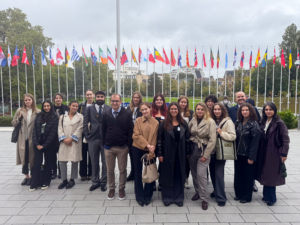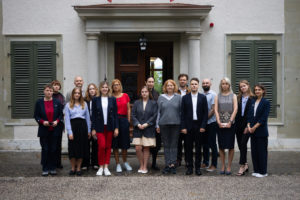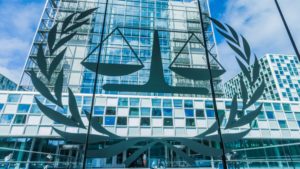
Strong international mechanisms
Strong international mechanisms are essential to hold governments to their human rights obligations, independently document human rights violations, and raise awareness of human rights issues among the international community.



Our position
Governments are increasing neglecting the findings of observation mechanisms established to ensure the implementation of human rights obligations and commitments. This includes those established under the Helsinki Agreements, by the Council of Europe, and under the United Nations human rights system. Debates surrounding the European Court of Human Rights are in this regard particularly worrying in various States, including key actors for the promotion of human rights, such as Poland or the United Kingdom.
A lack of cooperation with expert mechanisms is a sign of unwillingness by some States to have their achievements assessed. Some States disregard conclusions they disagree with, whilst using international mechanisms to promote their own vision of rights.
A tendency has also developed over time to allow a certain relativism in the cooperation with the international human rights mechanisms, including by States in funding certain mechanisms over others. To strengthen the universality and indivisibility of human rights, and hence the credibility of the international system, the United Nations’ ordinary budget on human rights must be increased.
Furthermore, States are investing more time in limiting the access of NGOs to international human rights mechanisms or in punishing those who cooperate with such mechanisms. Reprisals have become a way of weakening the whole system, and must be addressed.

Threats to special procedures
HRHF is extremely worried by current developments in the nomination and mandating of new UN Human Rights Council special procedures. The Human Rights Council has created multiple mandates serving politically motivated agendas, such as on: human rights and international solidarity; the negative impact of unilateral coercive measures on the enjoyment of human rights; or on the promotion of a democratic and equitable international order. The content of the description of such mandates promotes human rights relativism and questions the principles of universality and indivisibility of human rights.
Furthermore, these mandates have served as opportunities to nominate mandate holders known for their opposition to the independence of the special procedures.
With the multiplication of mandates less clearly related to human rights and the nomination of mandate holders with only governmental work experience, we fear an overall weakening of the special procedures.
In this context, it is more important than ever that States funding the Office of the High Commissioner for Human Rights insist on the technical and material independence of the special procedures.
- The Office should provide assistance to the mandate holders to fulfil the mandate as prescribed by the resolutions.
- Based on that, the Office must draw a clearer line between the work of the special procedures and its own work and findings, in order to ensure that the Office cannot be held accountable for mandate holders not delivering on expected outcomes or on material findings of mandate holders.
HRHF engages with mandate holders working on key priorities for HRHF and engages with those visiting countries in which Human Rights Houses are established. It also holds mandate holders accountable for their findings.






